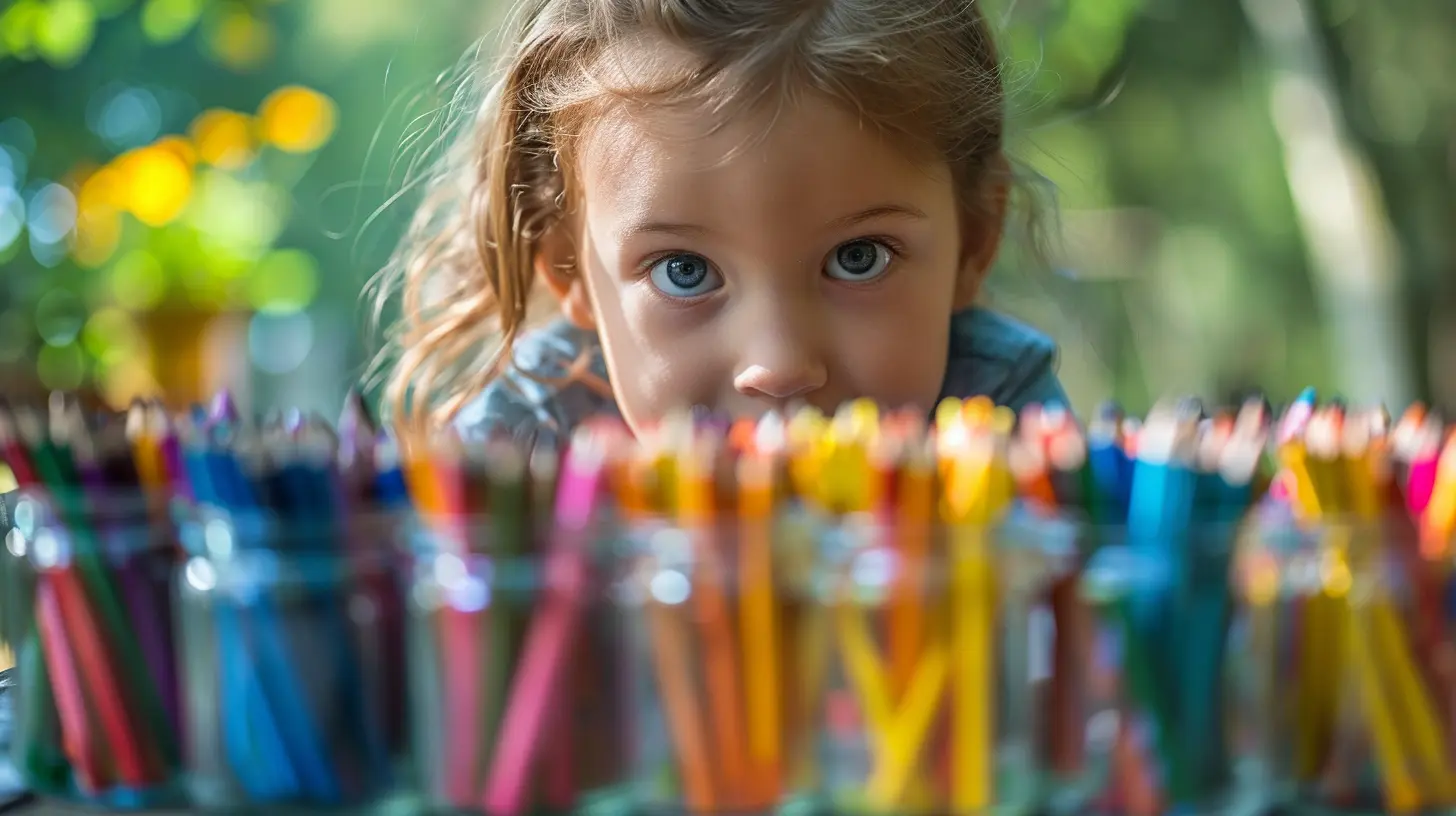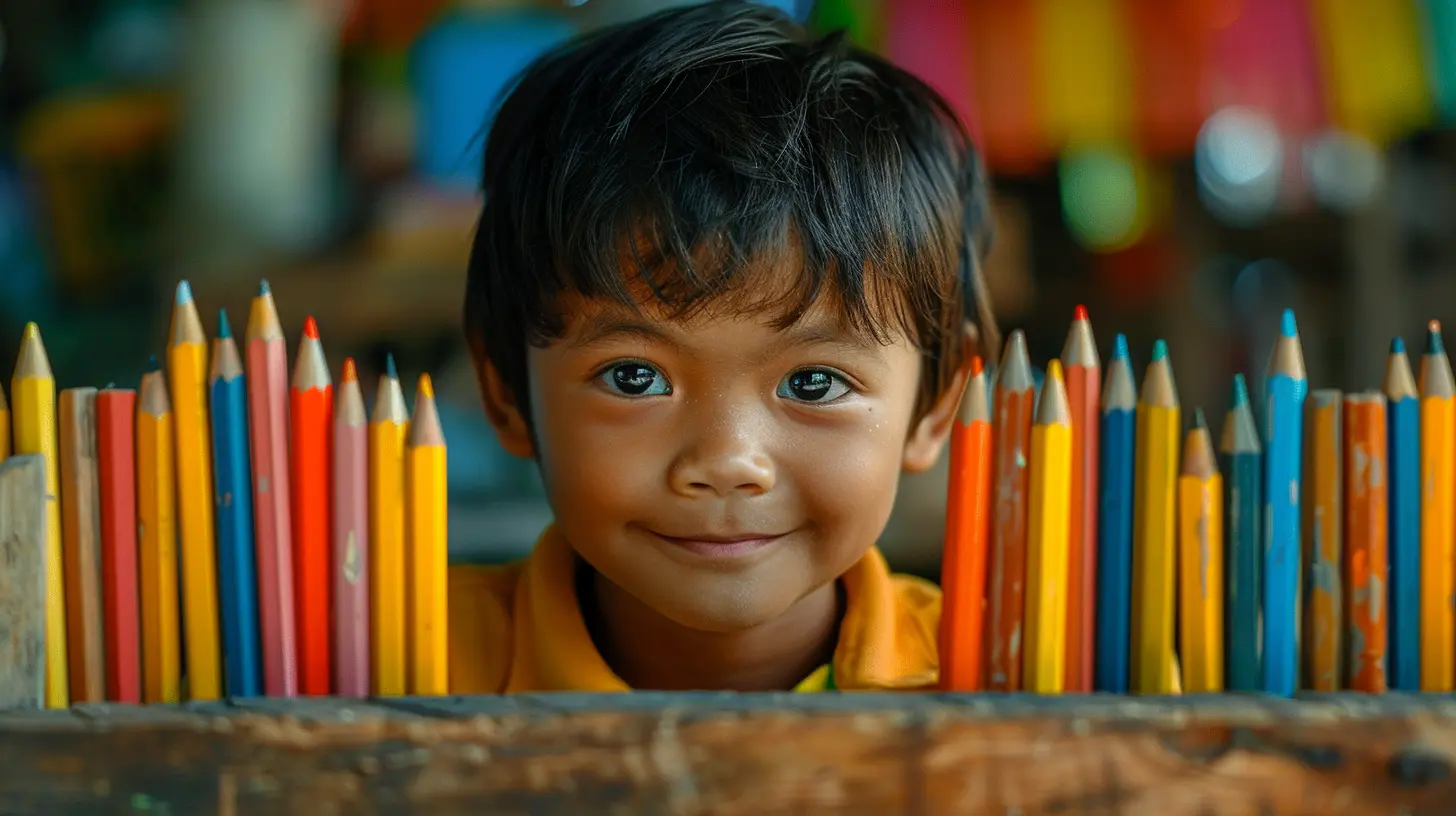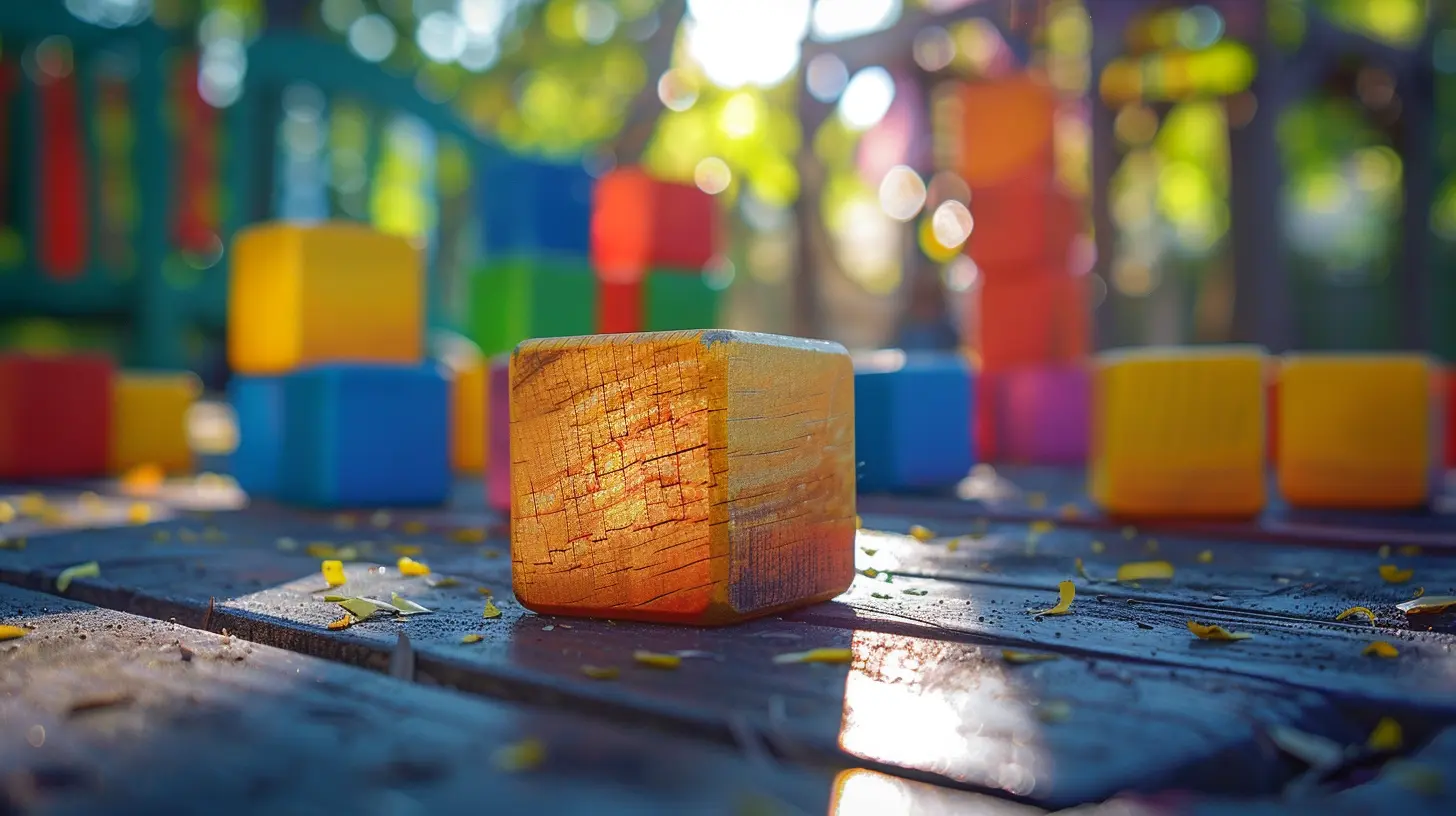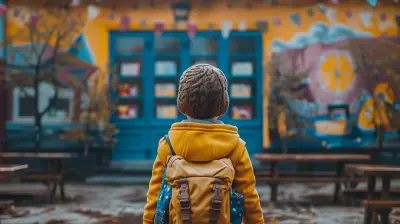Why Play-Based Learning Prepares Kids for Academic Settings
10 June 2025
In a world where kindergarteners are expected to sit still, memorize sight words, and complete worksheets, it’s easy to wonder: are we doing childhood right? As parents, we all want our kids to succeed academically—but what if the best way to achieve that doesn’t involve flashcards and structured lessons from the get-go? What if play, yes—simple, messy, imaginative play—is actually the secret sauce to raising curious, capable learners?
Let’s dive into why play-based learning isn't just child’s play. It lays the groundwork for thriving in academic settings and beyond.
What Is Play-Based Learning Anyway?
Before we get into the “why,” let’s clear up the “what.”Play-based learning is exactly what it sounds like: learning through play. Instead of rigid instruction, kids engage in activities that feel fun but are packed with developmental value. Think pretend grocery store in the living room, building block towers higher than the couch, or turning a cardboard box into a spaceship. There’s still intention behind the scenes—educators and parents gently guide children without hijacking their natural curiosity.
This isn’t the same as letting kids run wild 24/7. Play-based learning is child-led but adult-supported, and it creates rich opportunities for emotional growth, language development, motor skills, and—you guessed it—academic readiness.
The Science of Play: Why It’s a Brain Booster
Neuroscience is backing the playground. Here’s what happens when kids play:- 🧠 Cognitive Growth: Play activates neural pathways associated with decision-making, problem-solving, and planning.
- 🗣️ Language Development: Engaging in make-believe scenarios boosts vocabulary and communication skills.
- 🛠️ Executive Function Skills: These are the skills that help kids focus, follow rules, and handle transitions—essential tools for the classroom.
During play, the brain is working harder than it seems. It’s like a gym session for young minds. Every game, from "store" to "hide and seek," is a mini-lesson in logic, memory, and emotional intelligence.
Academic Learning Isn’t Just About Facts—It’s About Skills
Here’s a little truth bomb: being "school-ready" isn’t about knowing how to read before kindergarten. It's about being ready to learn.Academic success starts with a strong foundation in soft skills, most of which are best developed through—you guessed it—play. When kids play, they’re not just having fun. They’re:
- Practicing patience when they wait their turn.
- Experimenting with cause and effect when their block tower crashes.
- Building resilience when they don’t get their way.
- Collaborating and negotiating with peers during group play.
These transferable skills make the transition into structured academic environments smoother. Think of it like learning to swim in the shallow end before diving into the deep.
More Than ABCs and 123s: What Play Teaches That Classrooms Need
Let’s break it down even further. Here’s what play-based learning does that traditional methods sometimes miss:1. Boosts Social-Emotional Intelligence
In group play, kids learn empathy, self-regulation, and how to read social cues—vital behaviors that affect peer relationships and classroom harmony.Imagine a child who’s never had free play time with others. They make it to kindergarten knowing their letters but struggle with sharing, frustration, or conflict resolution. That emotional under-preparedness can become a massive roadblock.
2. Encourages Curiosity and Passion for Learning
Play sparks intrinsic motivation. This is the type of motivation that doesn’t come from gold stars or grades. A child who starts learning because they want to, not because they have to, is way more likely to stay engaged in school.Remember when your toddler asked “why?” a hundred times before breakfast? That curiosity is gold.
3. Develops Fine and Gross Motor Skills
From stacking blocks to climbing jungle gyms, play helps kids fine-tune their physical development. These physical milestones matter—a child who’s confident with their body is more likely to sit comfortably in a chair, hold a pencil properly, and participate in classroom activities.4. Fosters Creativity—and That’s Not Just for Artists
Creativity isn’t limited to drawing or coloring. It’s a way of thinking. Kids who play pretend or come up with their own games are developing the ability to think outside the box, a major asset in problem-solving and innovation later in life.Bridging the Gap: How Play-Based Learning Eases the Transition to School
If we expect kids to transition from playrooms to classrooms overnight, we’re setting them up for stress. But play-based learning acts as the bridge between the two worlds.Play-based preschool or early learning environments mimic real school, just at a kid’s comfort level.
- There's a daily structure, so kids learn routines.- There's a social community, so they learn cooperation.
- There's exploration, not pressure, so they learn to enjoy the process.
This kind of paced, low-stress environment builds confidence. And we all know confidence is essential when you’re walking into a new classroom for the first time.
Real Classroom Readiness Starts with Engagement, Not Memorization
Let’s be real: school isn't just about what you know. It's about how you show up to learn. Enthusiasm, curiosity, stamina, and focus are much more important in the early school years than knowing how to spell “rhinoceros.”Too often, we push rote memorization without teaching the “why” behind it. Play helps connect the dots.
For example, a child playing "restaurant" is using math (adding up the bill), writing (scribbling orders), and social skills (taking the customer’s request), all within a game they designed. That’s real engagement—and it sticks.
Common Myths About Play-Based Learning—and the Reality Check
Let’s bust a few myths you may have heard:Myth #1: “Play-based learning doesn’t prepare kids academically.”
Truth: It just prepares them differently—and often better. Kids learn foundational skills through context and experience, which are more memorable and applicable than rote learning.Myth #2: “Play is just goofing off.”
Truth: Structured, intentional play is one of the most powerful tools for child development. It’s not chaos; it’s calculated chaos with impressive outcomes.Myth #3: “Kids need to start academics early to stay ahead.”
Truth: Research shows that early academic pressure often leads to burnout or behavior issues, not long-term success. Let’s not trade joy for worksheets too early.What Parents Can Do to Support Play-Based Learning At Home
You don’t need a Montessori certificate or a Pinterest-perfect playroom. What matters is your mindset and involvement. Here’s how to encourage meaningful play at home:1. Make Space for It
Literally and figuratively. Set aside daily time and a small area for open-ended play.2. Offer Simple Materials
Wooden blocks, dolls, scarves, cardboard boxes—these kinds of items spark imagination more than flashy, one-purpose toys.3. Resist the Urge to Lead
You’ll be amazed what kids come up with when you let them take the wheel. Stay nearby, ask questions, and let them explore.4. Observe and Reflect
Watch how your child plays. Are they creating stories? Problem-solving? Testing limits? That’s learning in action. Talk about it later to reinforce those connections.What About the Critics?
Sure, some still push back, worried their kids won’t "keep up." But more and more educators, psychologists, and parents are realizing that slow and steady wins the race.Finland, often ranked as the top educational system in the world, starts formal academics at age 7. Before that? It’s mostly play. And yet, they outperform countries with earlier starts.
Why? Because when you build a strong foundation, everything else can stand taller.
Final Thoughts: The Power of Play Is Real
Look, it’s tempting to fast-forward childhood. To prep kids for the “real world” early. But here's the thing: play is the real world for kids. And it turns out, it’s the best prep they can get for school.So the next time your child builds a couch cushion kingdom or serves you imaginary tea, don’t just smile and nod—celebrate it. Because in those small moments, big growth is happening.
Let’s stop worrying that we’re not teaching enough and start trusting that play teaches everything they truly need.
all images in this post were generated using AI tools
Category:
School ReadinessAuthor:

Max Shaffer
Discussion
rate this article
3 comments
Axel McKenzie
This article beautifully highlights the vital role of play-based learning in children's development. It resonates with my experience as a parent; I've seen my child thrive when learning through play. It fosters creativity, critical thinking, and social skills, all of which are essential for success in academic settings. A refreshing reminder!
June 19, 2025 at 2:21 AM

Max Shaffer
Thank you for your thoughtful comment! I'm glad to hear that your experience aligns with the article's insights on play-based learning. It truly is a powerful approach to fostering essential skills in children.
Fleur McVey
Play-based learning fosters creativity, critical thinking, and social skills, laying a strong foundation for academic success. Engaging children in play nurtures their natural curiosity and love for learning.
June 18, 2025 at 3:50 AM

Max Shaffer
Absolutely! Play-based learning not only enhances crucial skills but also ignites a lifelong passion for learning, making it essential for academic success.
Jocelyn Harper
Play fuels lifelong learning success!
June 13, 2025 at 2:55 PM

Max Shaffer
Absolutely! Play stimulates curiosity and critical thinking, laying a strong foundation for lifelong learning.



